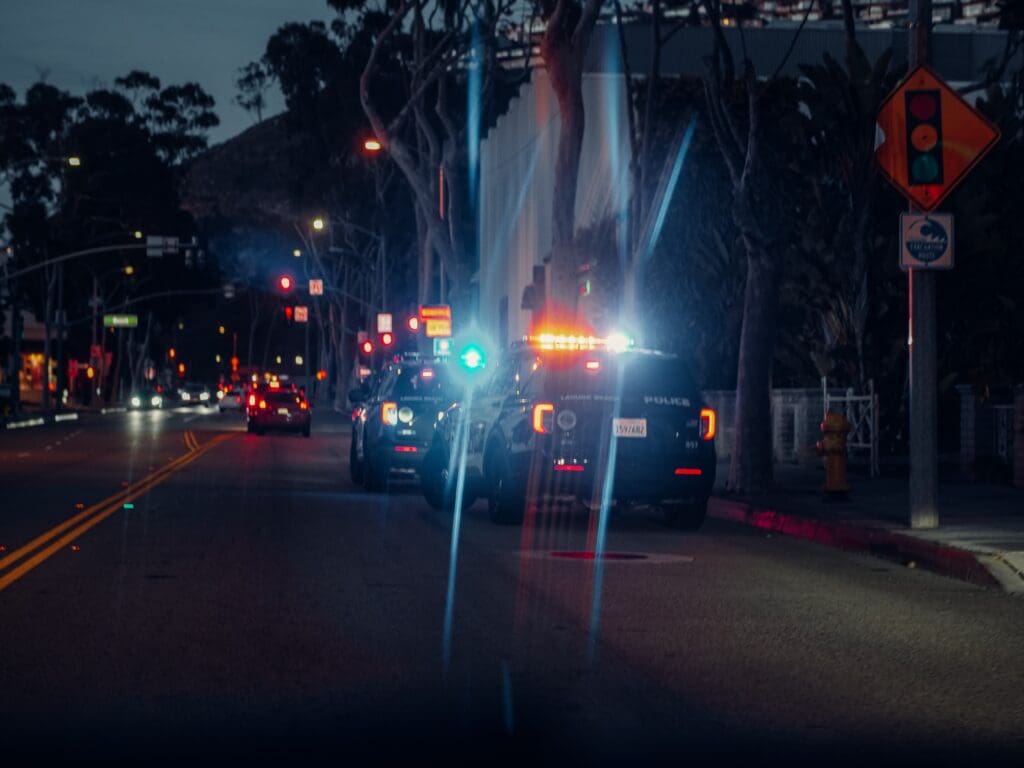Cops stopped me for suspected drunk driving and it’s raining out. Where will I do field sobriety tests?
OWI stops and inclement weather don’t mix, do they? If a law enforcement officer pulls you over for suspected drunk driving and it’s raining out, surely your field sobriety test performance will be impacted, right? And that’s especially the case if it’s snowing out. Fortunately for drivers, Wisconsin courts have determined the answer to this question. And as this area of law continually updates, our drunk driving defense attorneys will surely keep clients updated.
If you face drunk driving charges in Wisconsin, you could face significant penalties. These could include a driver license suspension, along with financial penalties, jail time, or prison time. In certain circumstances, you’ll lose your driver license forever. It’s certainly important that you hire an experienced, aggressive drunk driving attorney to defend you. At Van Severen Law Office you’ll meet some of the best drunk driving attorneys in the state. Finally, contact us at (414) 270-0202 immediately for help.
Why does the weather matter for an OWI stop?
After police stop you for suspected drunk driving, frequently they require you to complete a battery of field sobriety tests. The purpose of those tests is to determine whether or not you appear to be under the influence of alcohol or drugs. That conclusion, along with other observations by law enforcement, lead to the decision of whether or not they arrest you.
Field sobriety tests results are not as accurate as they could be in specific circumstances. For example, would you do a walk-and-turn test as accurately on a steep hill as on a flat surface? Probably not. If a bright, flashing police light in strobing into your eyeball, will horizontal gaze nystagmus results be accurate? Of course not. And if you’re doing a one-leg stand test on the ice, will you hold your balance? No. External factors – not your level of intoxication – will lead to failed tests. And that failed test will certainly be used as a justification to arrest you. Weather can be one of those external factors, leading to an incorrect conclusion and a possible pre-trial motion challenging your arrest.
Unpublished appellate decision regarding OWI stops and inclement weather
A recent unpublished appellate decision in Wisconsin deals with OWI stops and inclement weather. The specific question in that case focuses on whether field sobriety tests must be done in a location sheltered from inclement weather.
In Portage County v. Sean Michael Dugan, a deputy observed the defendant hit a snowbank and then drive the wrong way on a one-way street. The deputy stopped the defendant and observed his eyes to be glossy, smelled a strong odor of alcohol, and seemed to have a hard time focusing on the deputy. Eventually he admitted to consuming alcohol earlier in the day. Based on this information, the deputy requested the defendant complete a battery of field sobriety tests.
Inclement weather
At the time the deputy had the defendant complete field sobriety tests, it had already been snowing at a “light to moderate” rate for several hours. The deputy instructed the defendant to “stand in an impression in the snow created by his squad tires and directed [the defendant] to perform three standardized field sobriety tests. The deputy observed clues suggesting impairment on all three tests. Importantly, he later admitted that two of the test failures “could ‘potentially’ be related to the weather.” Based on the deputy’s initial observations of the defendant and the failed field sobriety tests, the deputy arrested the defendant and charged him with OWI 1st.
Court decision
The defendant argued two issues on appeal:
- Firstly, he argued that a reasonableness standard in the Fourth Amendment required the deputy to remove the defendant to a location sheltered from the inclement weather conditions for the purpose of fairly administering the field sobriety tests; and
- Secondly, he argued that the deputy could not have properly determined whether probable cause to arrest the defendant existed, as the failures of the tests could have been caused by the weather.
Regarding the first argument, the court found no statute or other requirement forcing officers to relocate suspects to a more sheltered location for field sobriety testing. Section 968.24 of the Wisconsin Statutes allows officers to transport suspects a short distance for testing. But allowing officers that option does not require them to do it.
Regarding the second argument, the court found no facts in the record suggesting weather conditions actually impacted the tests. Additionally, the circuit court had already determined the deputy had probable cause to arrest the defendant aside from the field sobriety tests. Specifically, the deputy observing the snow bank accident, the wrong-way driving, and the smell of intoxicants was sufficient.
So what does this all mean?
One thing is clear – police are not required to move suspects to sheltered locations for field sobriety testing. The law does not require that.
But secondly, that decision could lead to a valid motion argument focused on probable cause to arrest. In this case, the defendant had other factors justifying the arrest – the scent of booze, the accident, and the terrible driving. But absent those other factors, and with the addition of aggressive cross-examination of a police officer at a motion hearing, the result could easily be different.

Contact Van Severen Law Office for drunk driving defense
The drunk driving defense attorneys at Van Severen Law Office are some of the best in Wisconsin. All of our criminal defense attorneys understand drunk driving law and how to aggressively defend individuals facing OWI charges. This blog post described one possible basis for a pre-trial motion, specifically challenging a police officer’s probable cause to arrest you for drunk driving. There are many more motions and we must check to see if any of them apply to your case.
Contact us immediately at (414) 270-0202. Let’s start digging into your OWI case to figure out how to defend you.


